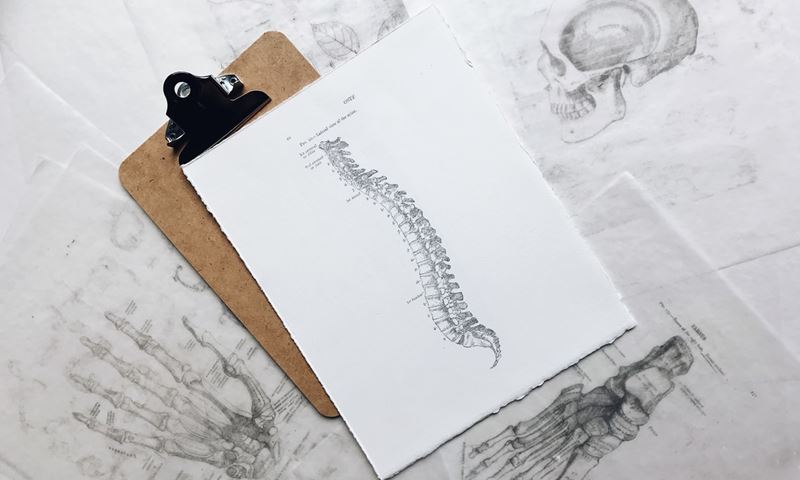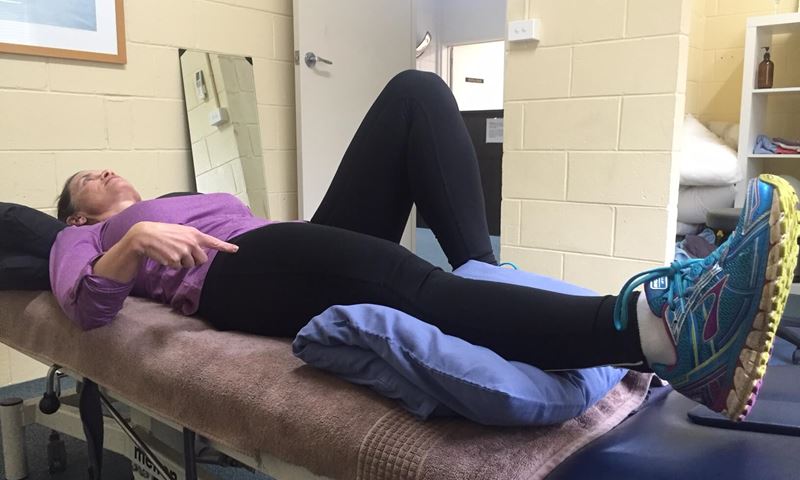Published 09 Jan 2020
Learn what different extras providers do and how their specialties can help you.
When you get an ache, pain or injury, or just want to keep yourself at your best, getting the best care at the right time can make a huge difference to your treatment and recovery. Talking to your doctor is the best first step, but it’s important to know who else can help you.
Don’t forget to log into your member area to check what extras services you’re covered for.
Learn more: How to make a claim
Acupuncture
Acupuncture treatment involves stimulating acupuncture points by using fine disposable acupuncture needles - or heat, magnets or laser. Following a correct diagnosis, traditional acupuncturists believe that precise but gentle stimulation on acupuncture points will help promote our self-healing systems, to promote and maintain good health.
Acupuncture can be good for managing pain, particularly dental pain, jaw pain and controlling nausea after surgery or chemotherapy.
Audiology
Audiologists help to diagnose, treat and manage hearing and balance disorders. Audiologists work in hospitals, private practice, universities, industrial workplaces and in research and development.
Following diagnosis, audiologists can prescribe hearing aids or hearing assistive devices, remove wax, and provide tinnitus rehabilitation and balance rehabilitation.
Chiropractic
Chiropractors diagnose, treats and prevent conditions of mainly the musculoskeletal system (bones, joints, muscles and ligaments). They use hands on treatment to manipulate the spine, skull and pelvis.
Chiropractic treatment can be good for back pain, headaches, postural issues, knee and shoulder pain.
Counselling
Therapy with a counsellor aims to help people identify ways to resolve behaviours, beliefs and feelings that impact on mental and physical health. It is usually conducted in a one on one session but may be done in a group setting. Counselling can be good for grief and loss, work or family issues, addiction and parenting.
Counsellors are different from psychologists and psychiatrists and it is always important to check they are accredited by a professional body.
Dentistry
Everybody needs to see the dentist regularly to prevent tooth decay or treat diseases of the teeth and the mouth. Dentists can clean your teeth, remove teeth, manage tooth decay and gum disease. Dentists and the dental health team provide education on how to care for your teeth and mouth. Specialist dentists can help you with more specific problems using surgical or cosmetic procedures.
You should see the dentist regularly for check ups to prevent disease, but you can see them for any tooth or mouth pain.
Diabetes educators
Diabetes educators are credentialed health professionals who specialise in assisting people with diabetes to self-manage and prevent complications. Diabetes educators can be nurses, exercise physiologists, dietitians, physiotherapists, podiatrist, pharmacists, midwives and medical practitioners.
Dietitians are experts in promoting health and managing disease by optimising nutrition. They provide advice about food, nutrition and strategies and education to promote healthy eating.
Dietitians might work with people with specific dietary needs such as food allergies, diabetes or coeliac or they can help people to gain weight or lose weight for good health.
An exercise physiologist is a qualified allied health professional who design and deliver safe and effective exercise interventions for people at high-risk of developing, or with existing chronic and complex medical conditions, injuries or disability.
They will prescribe a personalised exercise program, liaise with other health practitioners, provide counselling on how to maintain an active lifestyle and ensure exercise programs are safe for the client. They are the most qualified health professionals in Australia to prescribe exercise.
Myotherapy
Myotherapists use hands on therapy to treat or prevent soft tissue pain caused by muscle and myofascial dysfunction or injury. Treatment may include trigger point therapy, joint mobilisation, dry needling, cupping and stretching.
You can see a myotherapist without a GP referral and are useful for musculoskeletal conditions such as back, neck or shoulder pain, tennis elbow and headache.
Occupational therapy
Occupational therapists assist people with developing their skills for living and working independently, particularly following injury or illness. For example, they can source adaptive equipment and help people retrain their ability to perform independent self-care like dressing and showering; or equipment to help people drive or return to work. They work with people regardless of age but have expertise in working with children, where they assist with strategies, skills and equipment to overcome or manage delayed development, learning difficulties, disabilities and rehabilitation.
Optometry
Optometrists are health professionals with expertise in preventing, assessing and managing eye and vision disorders such as glaucoma or macular degeneration. They can supply, prescribe and fit vision aids such as spectacles (glasses) and contact lenses. They can also provide expert advice on occupational eye safety and vision requirements, vision related learning disabilities and lighting.
Learn more: Getting your eyes tested, what you need to know.
Orthodontics
An orthodontist is an oral health professional who diagnoses, prevents and manages misalignment of the teeth and jaws. They use a variety of techniques and treatment options to bring the teeth and jaw back into alignment. They can also help with painful and misaligned bites, tooth movement caused by habits such as thumb sucking, and even some forms of sleep apnoea.
Osteopathy
An osteopath is a regulated health profession that focusses on the whole body using a variety of hand on methods including spinal manipulation, soft tissue massage techniques, stretching and joint movement. They may also prescribe exercise programs, give postural advice or an ergonomic review.
Osteopathy is good for postural issues, neck, back and shoulder pain, arthritis, sciatica and tendon problems.
Pharmacists are specialist health professionals who prepare and dispense medications, provide advice on the use of medications and promote health awareness and disease prevention. They advise the public as well as other health professionals about medication use and therapeutic effects.
Physiotherapists help people recover from injury, increase mobility and prevent further injury. They work in all sectors of healthcare from hospitals to sporting clubs, and with most health conditions from neurological like stroke to back injuries to paediatric care.
Physiotherapists use a variety of methods including exercise prescription, joint manipulation, airway clearance techniques for those with lung conditions, to acupuncture and hydrotherapy.
Podiatrists asses, diagnose and manage conditions related to feet. They can prescribe orthotics (shoe inserts that assist with correcting foot imbalances), manage skin problems, calluses and corns and nail disorders, or assist with rehabilitation from foot and ankle injuries or overuse. Podiatry is essential in the management of conditions like diabetes and arthritis.
Psychologists provide assessment and therapy to people of all ages to help with how they feel, behave and react, and to maximise their mental health. They help with issues like depression, anxiety, and eating disorders; with athletes in sports psychology or with behavioural issues in children and adolescents. Psychologists don’t prescribe medication but use a variety of evidence based techniques to help people manage their mental health.
Remedial massage
Remedial massage is a manual therapy which involves the practice of kneading and manipulating a person’s muscles to promote healing. It can be effective in the management of low back pain, delayed onset muscle soreness, soft tissue injuries and stress.
A variety of health professionals can provide remedial massage and they must be registered to provide the service which involves the objective assessment, treatment and rehabilitation of the cause of biomechanical dysfunction.
Speech therapy
Speech pathologists work with people and carers of all ages to help diagnose and treat communication disorders. This might be when people have problems with speech, voice, using and understanding language, fluency, reading or writing. They also work with people who have difficulties eating or drinking safely (also known as dysphagia).
Speech pathology services might be sought out for rehabilitation after stroke, brain injuries, hearing loss or dementia, or with developmental delays or learning disability. After an assessment, the treatment might involve skill acquisition, adaptive equipment use, exercises and strategies.
Don’t forget: Everyone’s health needs are different and the remedies that help your friends or family can be different to what may help you. Your GP should always be your first point of call if you have serious or ongoing issues or questions.
Have questions about your cover? Log into the member area or contact us.



